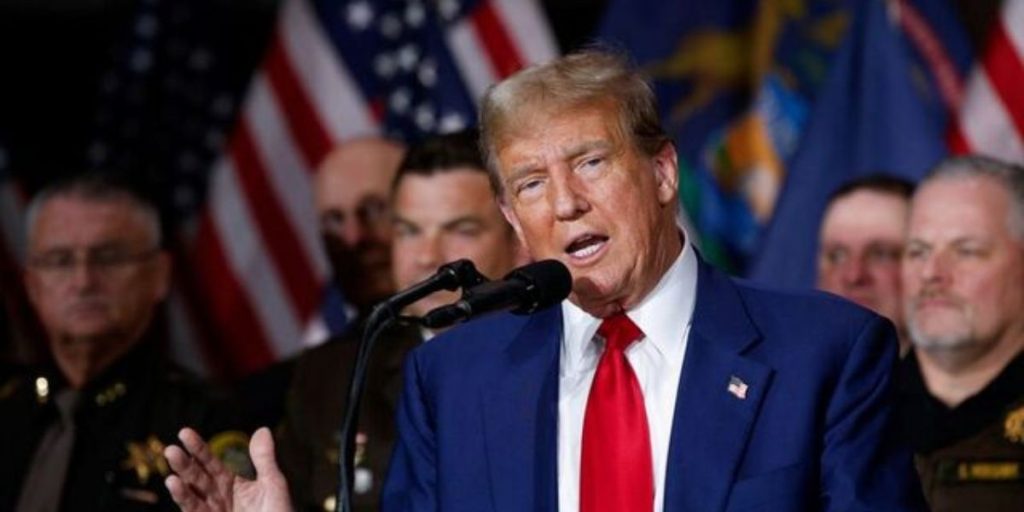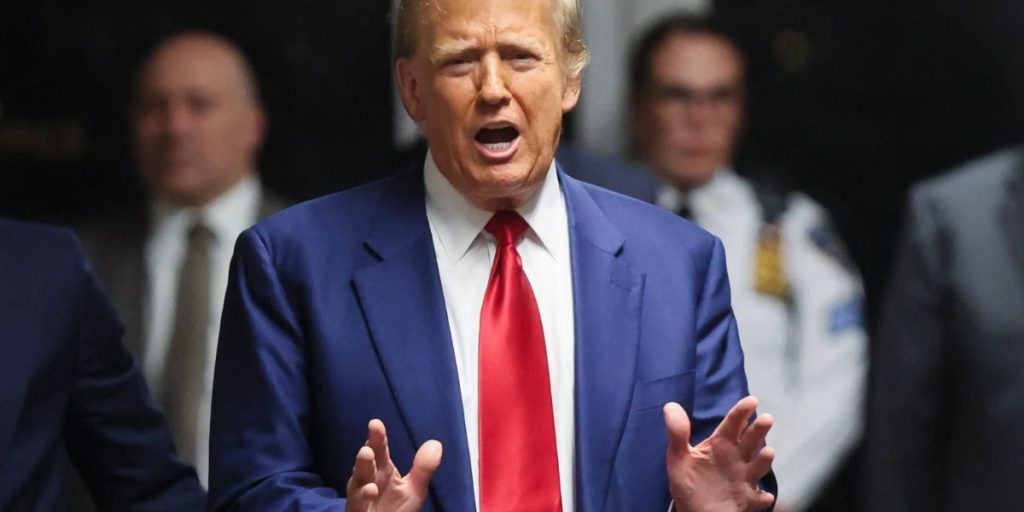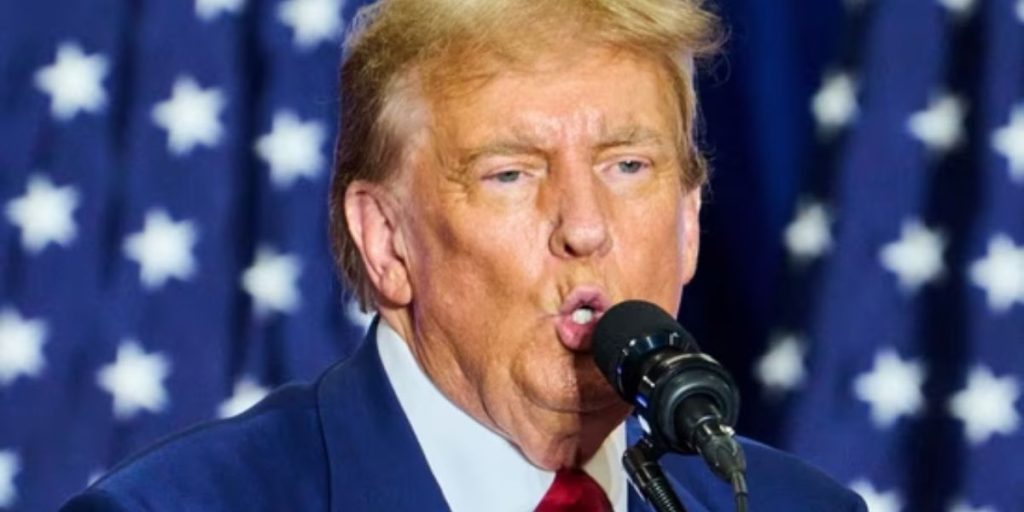A New York court on Wednesday denied former President Donald Trump’s request to postpone his upcoming criminal trial until the Supreme Court resolves his sweeping claim of presidential immunity.
Trump raised the issue in a March legal brief, requesting Judge Juan Merchan to postpone the trial until the Supreme Court rules on the scope of presidential immunity in a second Trump case involving federal election involvement allegations.
However, Merchan believes Trump highlighted the issue too late. Trump was charged with falsifying business documents by Manhattan District Attorney Alvin Bragg on April 4, 2023, more than a year ago. The trial is set to begin on April 15.
“This Court finds that Defendant had myriad opportunities to raise the claim of presidential immunity well before March 7, 2024,” Merchan wrote in his Wednesday decision.
That means Trump will face his first criminal trial this month, despite the fact that he has previously been able to postpone or reschedule trials in other criminal matters.

Todd Blanche, a Trump lawyer, and Bragg’s office declined to comment.
In the federal election interference case, the Supreme Court decided to investigate whether past presidents are immune from criminal prosecution for conduct committed during their term.
What exactly is the case about?
The New York case revolves around whether Trump criminally manipulated company documents to conceal a $130,000 hush money payment made by Trump’s former lawyer, Michael Cohen, to adult film actress Stormy Daniels prior to the 2016 presidential election. In exchange for the money, Daniels agreed to keep quiet.
According to prosecutors, the timing was not coincidental: Trump was anxious that Daniels might harm his campaign by publicly discussing a sexual encounter she claims the two had. Trump disputes her allegations.
According to authorities, Trump subsequently compensated Cohen with monthly cheques disguised as payments for 2017 legal services and documented in fake corporate records at the Trump Organization.
When the disguise was used to perpetrate or hide another crime, New York law elevates the falsification charge to a felony. Prosecutors claim that applies to Trump because he broke federal election rules regarding campaign donation limitations.
They have stated that Cohen received prison time after pleading guilty to making an unlawful political donation with the payment. They also claim Trump attempted to violate New York’s election and tax laws.

Why wait until after the Supreme Court ruling?
Trump contended that the Supreme Court’s assessment of the breadth of presidential immunity in his federal election interference case would minimize the likelihood of having to retry the case since the New York court failed to apply the immunity theory correctly. The Supreme Court has set oral arguments for April 25 and has the discretion to announce a verdict after that.
However, Merchan said Wednesday that Trump chose not to raise the presidential immunity defense until long after the 45-day time set by New York law for submitting pre-trial motions after being arraigned, a process in which a defendant first appears in court and makes a plea. Trump was arraigned on the same day he was accused, April 4, 2023.
According to Merchan, Trump demonstrated that he was aware of the presidential immunity defense long ago. The judge noted that Trump had adequately disclosed the problem in his separate federal election interference case by October 5 and that he also discussed presidential immunity issues over a year earlier, when he attempted to move the hush money case from state court to federal court on May 4.
“Further, and as an aside, the fact that the Defendant waited until a mere 17 days prior to the scheduled trial date of March 25, 2024, to file the motion, raises real questions about the sincerity and actual purpose of the motion,” the judge noted. Trump’s trial was planned for March 25 when he submitted the motion, but it was later postponed to April 15.

“The circumstances, viewed as a whole, test this Court’s credulity,” the judge stated.
Excluding evidence due to presidential immunity?
Separately, Trump urged for the exclusion of evidence in the New York case based on the presidential immunity doctrine, such as social media statements about Cohen’s payments and Cohen’s readiness to cooperate with prosecutors. In a court brief, he claimed that his Twitter account was the primary vehicle used by the White House to conduct official business, hence the messages were protected official actions.
However, Merchan stated that given the timeliness issue, he would not assess the merits of that claim.
Merchan noted in a footnote that Trump did not appear to be contending that the underlying alleged facts supporting the hush money claims – such as Cohen’s payment to Daniels or record-keeping at the Trump Organization – constitute a presidential immunity claim.
“Defendant’s motion is DENIED in its entirety as untimely,” he added.